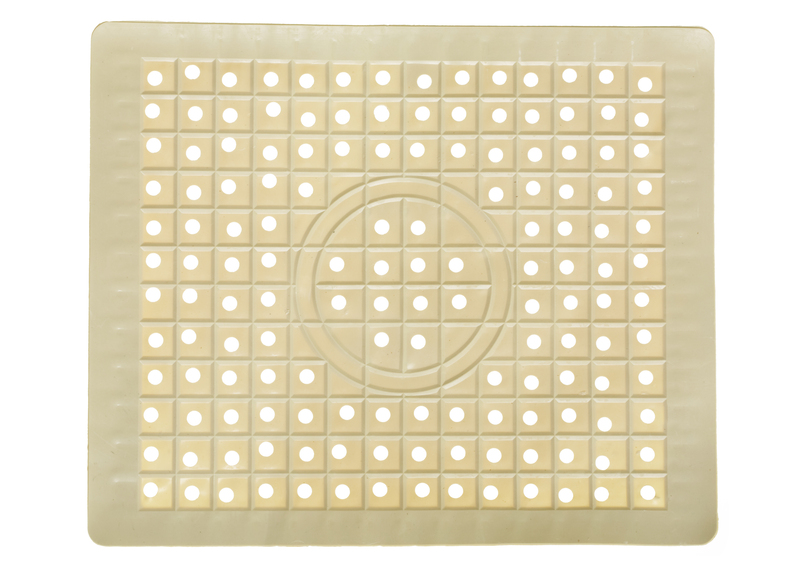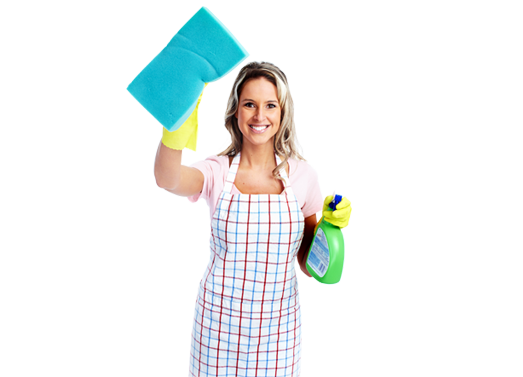Transform Indoor Living with Enhanced Air Quality
Posted on 20/06/2025
Transform Indoor Living with Enhanced Air Quality
Imagine stepping into your home and taking a deep breath of fresh, clean air--free from allergens, dust, and pollutants. Enhanced indoor air quality doesn't just improve comfort; it boosts health, mood, and productivity. In this comprehensive guide, we'll show you how to transform your indoor living space by prioritizing cleaner, healthier air. Discover actionable strategies, expert insights, and the latest innovations for optimizing your home's atmosphere.

Why Focus on Indoor Air Quality?
The quality of the air inside your home plays a crucial role in your well-being. According to the Environmental Protection Agency (EPA), indoor air can be two to five times more polluted than outdoor air. With people spending up to 90% of their time indoors, it's more important than ever to ensure that your living space supports respiratory health and overall wellness.
- Health Benefits: Improved indoor air quality reduces the risk of respiratory illnesses, asthma, and allergies.
- Mental Clarity and Productivity: Cleaner air supports better sleep, concentration, and productivity for both work and school.
- Home Protection: Less dust and pollutants mean less damage to your furniture, appliances, and electronics.
Common Sources of Indoor Air Pollution
To truly transform your living environment, it's critical to identify and address common air pollutants:
- Volatile Organic Compounds (VOCs): Emitted from paints, cleaning products, glues, and new furniture.
- Mold and Mildew: Thrive in areas with excess moisture, affecting air quality and triggering allergies.
- Dust Mites and Pet Dander: Regular components of household dust, especially with pets at home.
- Smoke and Cooking Fumes: From tobacco products or unventilated cooking, these can severely degrade indoor atmosphere.
- Pollen: Often carried in from outdoors, affecting those with sensitivities.
Proven Strategies to Improve Indoor Air Quality
Begin your journey to enhanced indoor air quality by harnessing these effective, science-backed strategies:
1. Increase Natural Ventilation
- Open Windows & Doors: Regularly airing out rooms helps expel contaminated air and brings in fresh oxygen.
- Cross-Ventilation: Create airflow between opposite windows or doors for better circulation.
- Mechanical Ventilation: Use exhaust fans in kitchens and bathrooms to remove humidity and pollutants.
2. Maintain Your HVAC System
- Change Filters Regularly: Dirty filters not only restrict airflow but also recirculate pollutants.
- Professional Servicing: An annual HVAC check ensures efficient operation and cleaner air output.
- Upgrade to HEPA Filters: Consider high-efficiency particulate air (HEPA) filters for maximum particle removal.
3. Adopt Air Purifiers for Home Enhancement
- HEPA Air Purifiers: Trap particles as small as 0.3 microns, including pollen, pet dander, and dust mites.
- Activated Carbon Filters: Remove gases and odors for superior home indoor air quality.
- UV-C Air Purifiers: Destroy bacteria, viruses, and mold spores for added safety.
Pro Tip: Always select a purifier rated for your room size and check Clean Air Delivery Rate (CADR) ratings for effectiveness.
4. Regulate Humidity Levels
- Use a Dehumidifier: Maintain humidity between 30% and 50% to prevent mold and mildew growth.
- Check for Leaks: Repair damp spots, leaky faucets, and water stains to avoid excessive moisture.
5. Upgrade Household Cleaning Habits
- Opt for Green Cleaning Products: Avoid using cleaners with harsh chemicals or artificial fragrances.
- Vacuum with HEPA Filters: Capture fine particles that normal vacuums miss.
- Damp Dusting: Use a damp cloth to trap dust instead of spreading it into the air.
6. Houseplants: Nature's Air Purifiers
- Spider Plant, Snake Plant, and Peace Lily: These varieties are proven to absorb toxins and release oxygen.
- Maintenance: Avoid overwatering and check for mold in soil.
*While plants help, they should supplement-- not replace--other air improvement strategies.
7. Ban Smoking Indoors
- Tobacco Smoke: One of the leading causes of poor indoor air quality; always smoke outside.
8. Control Allergens and Pollutants
- Establish No-Shoe Zones: Reduces dirt, pollen, and toxins brought in from outside.
- Wash Bedding and Curtains Regularly: Prevents dust and allergen buildup.
- Groom Pets Frequently: Reduce pet dander and hair shedding by regular brushing and bathing.
Latest Innovations for Enhanced Indoor Living
Smart Air Monitoring Systems
Today's homeowners can easily track and optimize indoor air quality with smart sensors and monitors that detect:
- Particulate matter (PM2.5 and PM10)
- VOCs
- Carbon dioxide (CO2) and carbon monoxide (CO)
- Humidity and temperature
Popular brands: Awair, Airthings, and IQAir offer user-friendly devices to alert you to invisible threats and suggest corrective actions.
Integrating Air Quality with Smart Homes
- Automated Purifiers and Ventilation: Link purifiers, HVAC, and fans to sensors for instant response to poor air events.
- Remote Monitoring: Control and track air quality from your smartphone--at home or on the go.
- Voice Assistant Integration: Use Alexa or Google Assistant to monitor and manage settings hands-free.
Room-by-Room Indoor Air Quality Transformation
Living Room
- Limit use of scented candles and air fresheners.
- Choose low-VOC furniture and paint finishes.
- Vacuum upholstery and floors regularly.
Bedroom
- Wash bedding in hot water weekly to neutralize dust mites.
- Consider using allergen-proof bed covers.
- Keep pets off beds to minimize dander exposure.
Kitchen
- Always use exhaust fans while cooking.
- Wipe surfaces often to prevent mold growth from spills.
- Avoid harsh, chemical-based cleaners on counters and floors.
Bathrooms
- Ensure proper ventilation to curb molds and odor accumulation.
- Fix leaks quickly and dry surfaces after use.
Basements
- Install dehumidifiers to prevent dampness and mold formation.
- Address structural cracks that could lead to moisture seepage.
Benefits of Prioritizing Indoor Air Quality
The impact of enhanced home air quality manifests across various facets of life:
- Reduced Allergic Reactions: Less sneezing, coughing, and congestion.
- Better Sleep: Breathing easier at night supports restful sleep and morning energy.
- Lower Risk of Chronic Illness: Potentially reduce incidence of asthma, heart disease, and respiratory infections.
- Higher Home Value: Buyers are increasingly searching for healthy homes, making upgrades a sound investment.

Frequently Asked Questions on Indoor Air Quality
How often should I replace air filters?
Check air filters monthly and replace every 2-3 months, or more frequently if you have pets or allergies.
Can houseplants significantly improve air quality?
While houseplants do absorb certain toxins and increase humidity, their effects are modest in comparison to air purifiers and regular cleaning practices.
Is it safe to open windows if I live in a polluted city?
Check local air quality indexes. If outdoor pollution is high, use air purifiers and keep windows closed. Otherwise, ventilating for a few minutes daily is beneficial.
Are air purifiers worth the investment?
Yes--especially for those with allergies, asthma, pets, or living in urban areas. Modern air purifiers can transform your living space's air quality quickly and quietly.
Conclusion: Take Charge of Your Indoor Environment
Investing in enhanced indoor air quality is one of the wisest decisions you can make for you and your family's health. It's about more than just comfort; it's about creating a sanctuary where you thrive physically and mentally. Take the first step today--adopt smart air quality solutions, embrace healthy habits, and experience the remarkable difference in your indoor living.
- Breathe easier.
- Sleep better.
- Boost energy and mood.
- Protect your loved ones.
Make the transformation--because every breath should be a healthy one. Your home is your sanctuary; let it nurture you with every breath you take.





